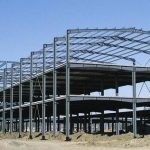Course Overview:
The “Transportation Engineering and Railway Network Design” course covers the scientific and practical foundations necessary for the design and planning of railway systems. It focuses on analyzing existing systems and developing solutions to enhance the effectiveness and efficiency of railway transport networks, aligning with modern requirements for sustainable mobility and meeting growing transportation demands.
Course Objectives:
- Understand the fundamental principles of transportation engineering and railway network planning.
- Learn how to design railway tracks, stations, and movement control systems.
- Familiarize participants with maintenance techniques and network management.
- Analyze current systems to identify strengths and weaknesses.
- Develop planning skills to improve integration between railways and other transportation systems.
Training Content:
- Introduction to transportation engineering and the importance of railways.
- Design of railway tracks: standards and techniques.
- Planning and design of railway stations.
- Signaling systems and movement control.
- Modern railway technologies (such as high-speed trains and light rail).
- Cost-benefit analysis and feasibility studies for railway projects.
- Maintenance of railway networks and asset management.
- Case studies of successful railway network design projects.
Target Audience:
This course is aimed at civil engineers, architectural engineers, engineering students, and urban planners, as well as transportation specialists and project managers. It is also suitable for professionals involved in the development of transportation infrastructure, the railway industry, and investors in transportation projects.






